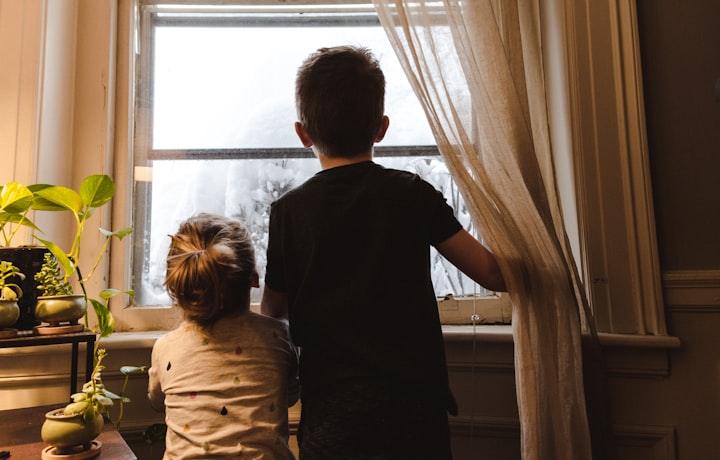Why Winter Weather Wrecks Kids' Health?
How cold temperatures, dry air, and changed behaviors lead to more sickness?

Introduction
As the winter months approach, parents often notice a predictable yet frustrating pattern: their children seem to get sick more often. The cold weather itself isn't directly to blame for these illnesses, but it does create an environment that fosters the spread of viruses. Several factors contribute to this seasonal spike in childhood sickness, from the biology of pathogens to the way we behave when the temperature drops. In this article, we'll explore the reasons behind this phenomenon, providing insights into why children are particularly susceptible to getting sick in winter and offering advice on how to keep them healthier during these chilly months.
The Winter Effect on Childhood Illness
1. Indoor Crowding and Reduced Ventilation
One of the primary reasons children fall sick more often in winter is the increased time spent indoors. As temperatures plummet, kids and adults alike seek the warmth of indoor environments. Schools, daycare centers, and even our homes become crowded, and this close proximity to others facilitates the spread of germs. Viruses that cause the common cold, influenza, and respiratory syncytial virus (RSV) are easily transmitted through the air and by close personal contact.
Moreover, in an effort to conserve heat, windows and doors remain shut, leading to poor ventilation. The lack of fresh air circulation allows airborne viruses to linger longer in the environment, increasing the likelihood of inhalation and infection among children, whose immune systems are still developing.
2. Immune System Challenges
The immune system is our body's defense against infections, and it can be influenced by a variety of factors, including temperature. Cold weather can suppress the immune system by decreasing blood flow and limiting the movement of white blood cells, which are crucial for fighting off infections. Additionally, children have less exposure to sunlight during winter, resulting in lower levels of vitamin D, which is essential for a healthy immune response.
Furthermore, kids' immune systems are less mature than those of adults, making them more vulnerable to pathogens. As children grow, they encounter and build immunity to a multitude of germs, but during their early years, they are more susceptible to infections they have not yet been exposed to.
3. The Role of Dry Air
Winter air is not just cold; it's also dry. This lack of humidity can dry out the mucous membranes in the nose and throat, which are part of the body's natural defense system against viruses. When these membranes dry out, they are less effective at trapping and removing pathogens. Viruses, including the flu, have been shown to survive and transmit more effectively in dry conditions.
4. Seasonal Behavior Changes
Winter also brings about behavioral changes that can increase the risk of illness. For example, children are less likely to engage in outdoor physical activity during the cold months. Exercise is known to boost the immune system, so reduced activity can make children more prone to infections. Additionally, diets can change in the winter, with people often consuming fewer fresh fruits and vegetables, which are sources of essential vitamins and nutrients that support immune function.
Conclusion
The tendency for children to get sick more often in winter is a multifaceted issue that involves biological and behavioral factors. The combination of increased time spent indoors with poor ventilation, immature immune systems, the drying effect of cold air, and seasonal changes in lifestyle all contribute to the heightened risk of illness. Understanding these factors can help parents and caregivers take proactive measures to protect children, such as encouraging good hygiene practices, ensuring a nutrient-rich diet, and promoting physical activity when possible.
While some sickness is inevitable, being aware of the reasons behind the winter spike in childhood illnesses can lead to better prevention strategies and a healthier season for all. Remember that while we can't control the weather, we can certainly adjust our habits to mitigate its impact on our health and well-being.





Comments
Rajeshkumar G is not accepting comments at the moment
Want to show your support? Send them a one-off tip.